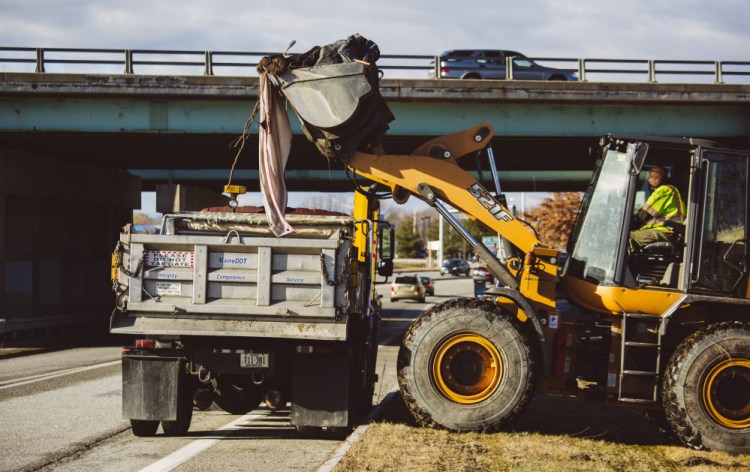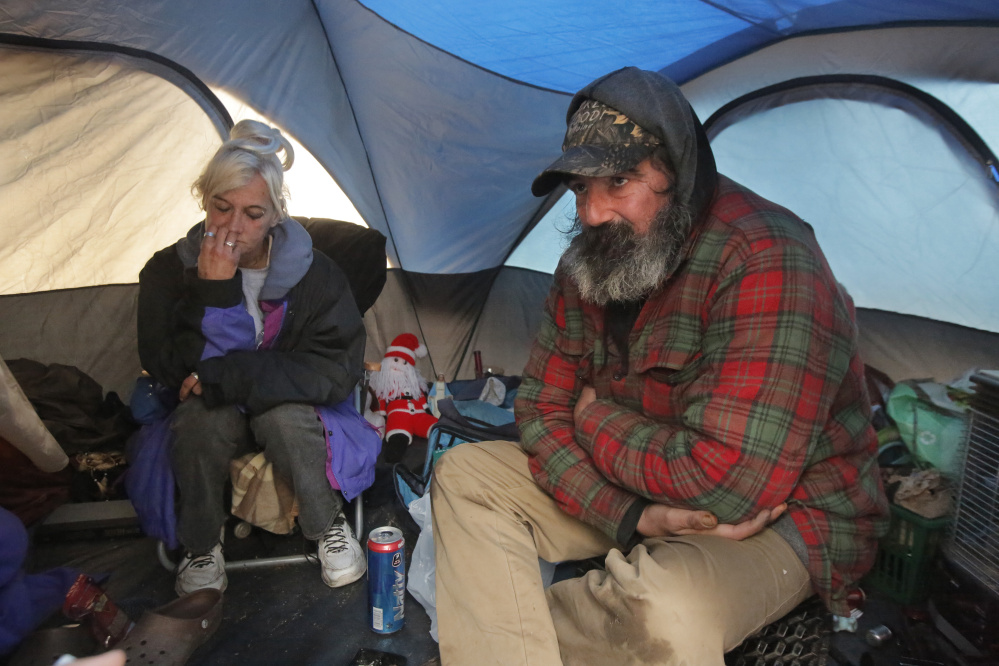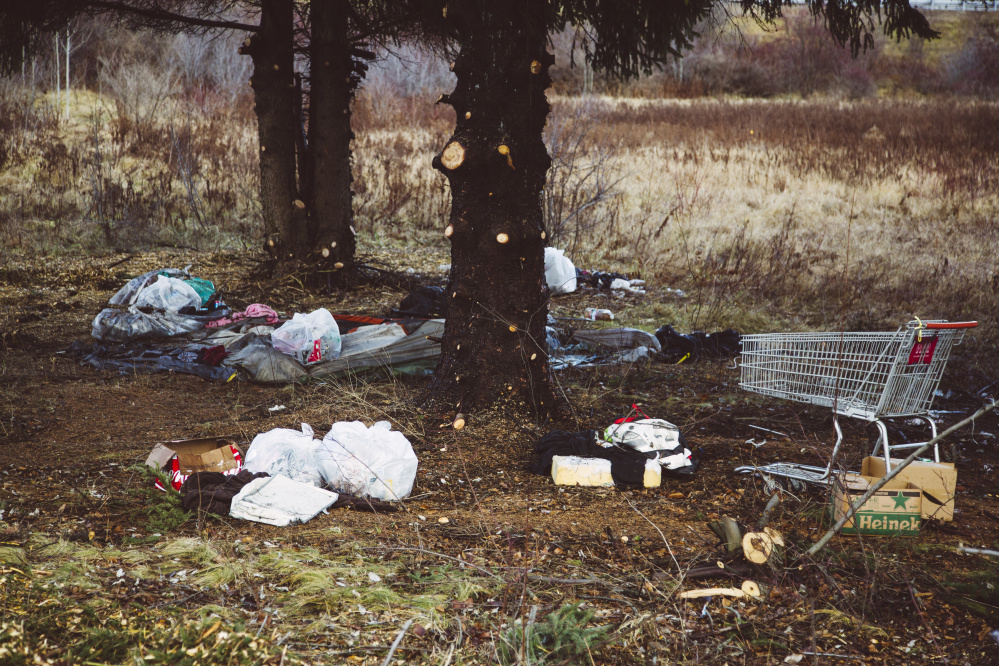State highway crews have dismantled as many as two dozen homeless encampments while clearing brush alongside Interstate 295 and its access ramps in Portland during the past month.
State officials said the roadside maintenance project was long overdue and was designed to improve the appearance of the highway, which skirts the city’s downtown. Clearing out the homeless encampments also was done to improve public safety, at the request of city police.
“It’s not being done without reason. There’s certainly a public safety need associated with this,” said Assistant Police Chief Vern Malloch.
He said many crimes in the homeless encampments, ranging from sex crimes to serious assaults, go unreported out of fear that a campsite will be dismantled.
The occupants were given 24 hours’ notice to clear out before the campsites were destroyed and hauled away, officials said. It’s unclear how many of the campsites were being used.
Advocates for the homeless said the clearing was done without input from the nearby social services agency, as has been done in the past. It also comes as social workers have noticed a dramatic increase in the number of homeless people sleeping outside, rather than in the city’s emergency homeless shelter.
The clearing project started just north of the Veranda Street ramps, including part of the Back Cove, moved south along the highway and continued along the Fore River Parkway around the western edge of the city.
HOMELESS LAMENT LOSS OF CAMPS
Sherri Ferrier, 45, is among the dozens of people who choose to live outside, rather than sleep in the shelter. She was not displaced by the clearing project, but said she has had campsites torn down in the past. She is unable to stay at the homeless shelter, she said, because she had gotten into altercations when she was using heroin, so is periodically forced to find a new place to camp.
“It’s sad because they’re taking everything away from us,” said Ferrier, who’s current campsite is in a wooded area on the outskirts of the city and has a fire pit and a propane heater. “Everywhere we have to go they are cutting down, I guess, to get rid of the homeless people.”
“We’re trying to survive, but people don’t want to accept us as part of society,” said Jamey Wade, 54, who also has a tent at the remote campsite.
Ferrier and Wade spoke Thursday morning as rain gently fell on their campsite, about a 40-minute walk from downtown.
The Maine Department of Transportation’s brush cutting in Portland is part of a larger program to clear trees and brush in the state’s right of way along Interstate 295. The program raised the concerns of Freeport residents who live near the highway and lost their buffer when the trees were removed, prompting the state to issue an apology.
About 25 encampments were dismantled in Portland and discarded over the past month as part of the $40,000 project, said MDOT spokesman Ted Talbot. The work is being done in partnership with the city.
Tim Cusick, the MDOT’s superintendent of operations for southern Maine, said crews have been cleaning up everything from furniture, to old hypodermic needles to human feces.
“These places are bad. Our crews have to be very careful cleaning this stuff,” Cusick said. “It’s been neglected for years. We haven’t put a lot of effort into cleaning this stuff up. The homelessness has gotten worse.”
Cusick said the areas being cleared will be sprayed regularly with herbicide to prevent the undergrowth from returning.
SHELTER AVOIDERS SOAR THIS YEAR
Homeless advocates said they have seen a dramatic increase this year in the number of people who choose not to stay in the city’s homeless shelter, whether it’s because of bedbugs, crowded conditions, mental health or substance abuse issues, or having to follow a stricter set of rules, which includes passing through a metal detector and having their bags searched.
Donna Yellen, chief program officer for Preble Street, which operates a soup kitchen and resource center for the homeless, said that about six weeks ago, outreach workers counted 88 people who were homeless and not staying in shelters. There usually is only a small number of campers at this time of year.
That compares with an average of 405 people who slept in Portland’s homeless shelters each night in November.
Yellen said the new shelter regulations, the growing heroin crisis and the relatively mild weather might be prompting more people who are homeless to live in camps, despite the risks and challenges the camps pose. People who sleep outside are less connected to support services, and more exposed to dangers such as winter weather, advocates say.
“There’s a growing number of people who are living outside and we are concerned about that,” Yellen said. She estimated that the number of unsheltered homeless has doubled or tripled this year.
RELOCATING FARTHER FROM SERVICES
Preble Street outreach workers such as Peggy Lynch are concerned that the destruction of so many in-town campsites will push people farther away from the services they need.
Outreach workers at Preble Street weren’t contacted before the clearing, because police relied on city workers to give notice to camp occupants. Malloch, the assistant police chief, said the city previously worked exclusively with Preble Street, but has become more inclined to use outreach workers at the city’s homeless shelter.
“We are definitely engaging with social services to try to provide services to these folks,” he said.
Since neither the state nor the city gave them advance notice about the clearing, Preble Street workers have lost contact with many unsheltered people with whom they have built up trust, advocates said.
“It makes it harder for us to help them,” Lynch said.
Send questions/comments to the editors.





